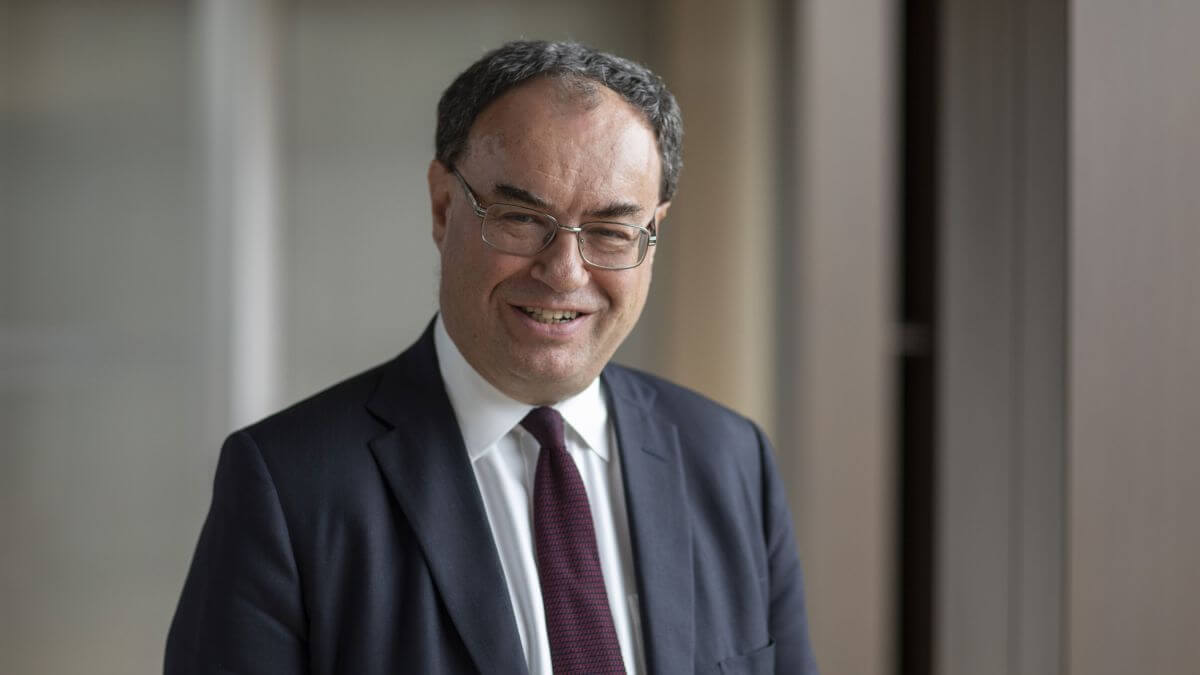The governor of the Bank of England has again criticised the crypto-industry. What didn’t he like this time?
Bank of England governor Andrew Bailey said that in its current form, the crypto industry offers many advantages and opportunities for fraudsters as well as criminals in general. In general, Bailey has long been a critic of Bitcoin and altcoins. For example, in March 2020, he called digital assets a good way to lose your money and advised citizens not to invest in crypto. We tell you more about what’s going on.

It should be noted that Andrew Bailey's name is well known to the cryptocurrency industry because of his constant criticism of digital assets. For example, in November 2021 he expressed concern about the too rapid introduction of Bitcoin into El Salvador's economy, although he was not asked to comment by the country's government. At the time, the main argument against the idea was the volatility of BTC, i.e. its sudden changes in value.
At the end of the year, Bailey's colleague Sir John Cunliffe, the Bank of England's deputy governor for financial stability, said crypto could trigger a global financial crisis. And it was yet another scare for fledgling investors, who are not used to sharp collapses in digital assets.
Now the bankers are up to their old tricks again. Although Bailey did voice a new argument against crypto.
A new round of criticism for Bitcoin
Bailey expressed his thoughts at a conference called Stop Scams, which was organised by the Bank of England. Here’s his quote, published by news outlet Decrypt, in which the banker shares his perspective on what’s going on.
Suffice it to ask the question: what do people committing extortionate cyberattacks usually demand ransom in? The answer is cryptocurrencies.
Note that before the advent and popularity of cryptocurrencies, ransoms in traditional crimes were most often demanded in cash. However, the banker traditionally doesn't bring this up - as does the massive use of cash to finance crime, pay for drugs and other known topics where conventional money is used.

Bank of England governor Andrew Bailey
Bailey added that while cryptocurrencies are “innovative” in the world of financial services, they also create “opportunities for outright criminal acts”. Overall, there is some truth to these words. Extortion attacks have occurred even against large corporations, and very often it is crypto that hackers demand. The reason here is that cryptocurrencies, due to their decentralized nature, cannot be controlled by law enforcement. Consequently, it is trivial for the authorities to reach the coins.
That said, the crypto niche does not consist solely of criminals and fraudsters. With this in mind and the potential of blockchain in general the day before, a semblance of praise for the decentralised asset industry was voiced by US Treasury Secretary Janet Yellen, among others. She acknowledged the potential of cryptocurrencies to create innovation in payment systems. We wrote more about this in a separate piece.
This week, the image of the crypto market tried to attack not only in England, but also in Australia. New warnings from the Australian Securities and Investments Commission about the proper conduct of well-known financial influencers could have a significant impact on local cryptocurrency companies. We’re talking about popular industry figures who are influencing the views of others in the industry.

Crypto advertising in Australia
A recent newsletter from the Australian Securities and Investments Commission describes the traps that influencers and advertising companies can fall into. They wittingly or unwittingly promote financial products which are capable of causing large losses on the part of investors. Penalties for failing to comply with ASIC warnings could end up in millions of dollars in fines for corporations and up to five years in prison for individuals.
However, some countries are willing to punish cryptocurrency fraudsters more severely. For example, in Turkey, the creator of the now-closed cryptocurrency exchange Thodex could receive more than 40,000 years in prison. The reason is the loss of millions of dollars to users due to his activity.

Cryptocurrency hacker
We think the Bank of England chief's position is no longer relevant. After all, since the existence of Bitcoin and other cryptocurrencies, the number of their fans is only increasing, and arguments like the volatility of assets or their connection with criminals are simply outdated. In addition, as we know from expert statements, crypto is not particularly easy to break the law - and it's hard to argue with that.
What do you think about it? Share your opinion in our Millionaire Crypto Chat. There, we’ll discuss other news related to the world of blockchain and decentralisation.















